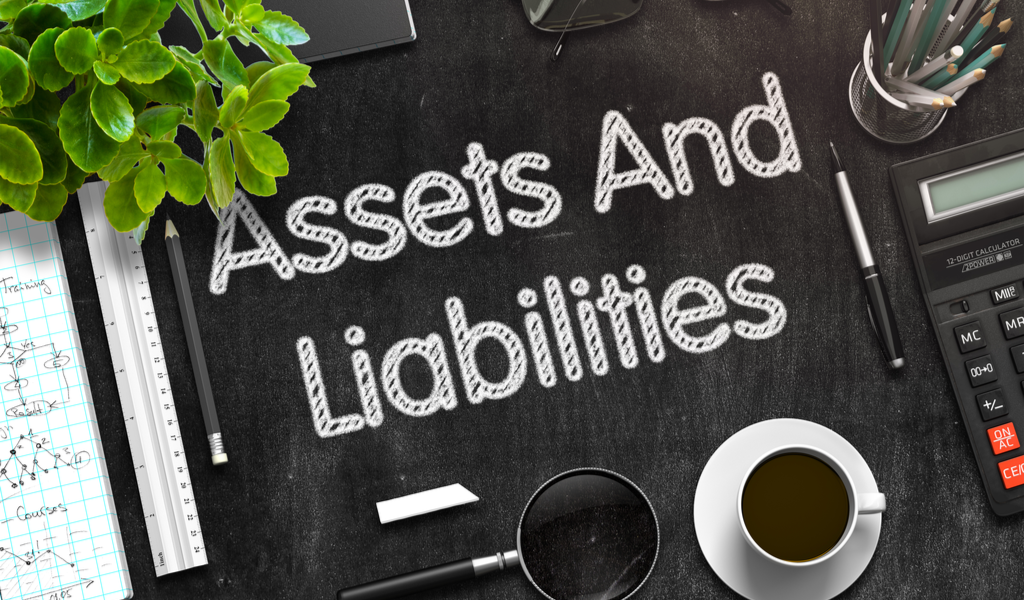What is Net Worth?
A person’s net worth is the amount by which their assets exceed their liabilities. In simpler terms, your net worth is the difference between what you own and what you owe. You will have a positive net worth when the value of your assets surpasses your liabilities. In the case of a reverse situation, where your liabilities are greater than your assets, you will end up with a negative net worth.
Your net worth is an instant indication of your financial situation at any given moment. Your net worth today is the result of everything you’ve earned and everything you’ve spent up to this point in your life. It can be an indication of a job well done or a reality check that things need to be rectified fast. This will help you evaluate the changes that need to be done to achieve your financial goals in the future.

What are Assets and Liabilities?
The total value of your assets is calculated by factoring in everything you own, given that they can be converted to cash when needed. For instance, things like real estate and personal property (vehicles, collectibles, jewelry), investments, bond and brokerage accounts, retirement funds, and, of course, cash itself, make a contribution towards your net worth.
Even intangibles such as your personal network can be considered as assets as well. Assigning a value to such a thing would not be easy, so one would need to be careful as to not overembellish their net worth.
Unfortunately, the same is true for physical assets like real estate as well. You will need to give your properties a realistic value by either comparing similar homes in the area to be recently sold or by consulting a qualified real estate professional. It is easy to inflate the value of several other assets as well, so it’s always better to put up a conservative number when assigning financial values.
Liabilities, on the other hand, are whatever you are eligible to pay. This includes everything from loans and mortgages to student debt, credit card debt, medical bills, utility bills, etc. Once both these values are determined, you subtract your liabilities from your assets to calculate your net worth.
Net Worth = Assets – Liabilities
What Does It Mean?
Your net worth is a snapshot of the current financial situation of your life. A positive figure tells you that you own more than what you owe, and a negative figure tells you that you owe more than you own. Here are two simplified calculations:
Assets: $230,000, Liabilities: $100,000
Your Net Worth: [$230,000 -$100,000] = $130,000
Assets: $100,000, Liabilities: $230,000
Your Net Worth: [$100,000 -$230,000] = -$130,000
In the first calculation, we see a positive net worth, while the second results in negative net worth. While positive net worth is always better, negative net worth doesn’t necessarily mean that you are financially irresponsible. It just means that at this point in your life, you have more liabilities than assets.
What is the Ideal Net Worth?
Like the fluctuations of a stock market, your net worth may also change constantly as you move through life. Ideally, it should always grow as you grow – once your student debt is paid back when you build equity in your home when you acquire more assets, and so on. But at some point, it may stay stagnant or begin to reduce, especially when you begin spending from your savings and investments for retirement income.
Every person’s financial situation is different, so there is no “ideal” target that applies to all. It is up to you to determine your target net worth – that is, where you want to be in the future (near and far). If you haven’t a clue where to start, the formula below serves as a good starting to point to determine a “target” net worth.
Target Net Worth = [Your Age – 25] x [1/5 x Gross Annual Income]
Using this formula, a 50-year old with a gross annual income of $75,00 would calculate as follows:
([50 – 25 = 25] x [$75,000 ÷ 5 = $15,000]) = $375,000
This doesn’t mean every 50-year-old out there should have the same net worth. It is just a starting point and can vary based on every individuals’ lifestyle and goals.

Why Your Net Worth Is Important
Seeing your net worth clearly is a very black-and-white assessment of your current financial standing. Calculating your net worth isn’t a one-time thing. You will have to keep assessing those statements over time to help you see where you are at different points in your life and reevaluate how you can get where you want to be in the future.
If you are seemingly doing the right thing and don’t need to change much, it could be the encouragement you need to keep going, but if you need to do some things to get back on track, there is no better reminder than this. Here are some things to do to redirect your efforts and increase your net worth:
Spend Wisely
If you are aware of your net worth, it can help you determine the areas of expenses where you spend too much money. Just because something is affordable to you does not mean you have to buy it. To keep yourself from falling into unnecessary debt, evaluate the thing to see whether it is a want or need before you spend money on it. The majority of your spending should fall into the need’s category. Keep in mind that want can sometimes be falsely counted as a need. For instance, you might think spending $500 on a pair of shoes is a need because you need footwear, but a less expensive pair may be just fine to fulfill the purpose and keep your financial situation from worsening.
Pay Down Debt
Having a comprehensive idea about all your assets and liabilities will help you draw up a plan to pay down debt. For instance, if you are earning 1% interest in a money market account, but paying off credit card debt at 11% interest, it would make more sense to use that money to pay off the credit card, especially when considering things in the long run.
You can use the same logic to make other debt decisions. When in doubt, bust out the calculator! See if it makes financial sense to pay off a certain debt, considering whether you are alright with not having that cash anymore (which you may have needed for some other purpose).
Save and Invest
Your net worth can be a good motivating factor to encourage you to save and invest money. It may show you that you are on track to meeting your financial goals, which helps you keep going. Or it may help you realize the areas that need improvement (such as assets that seem to be diminishing in value over time or liabilities that are snowballing quickly). This shows you which areas you need to focus on first and prove to be the spark of motivation you needed to start saving and investing the right way.



